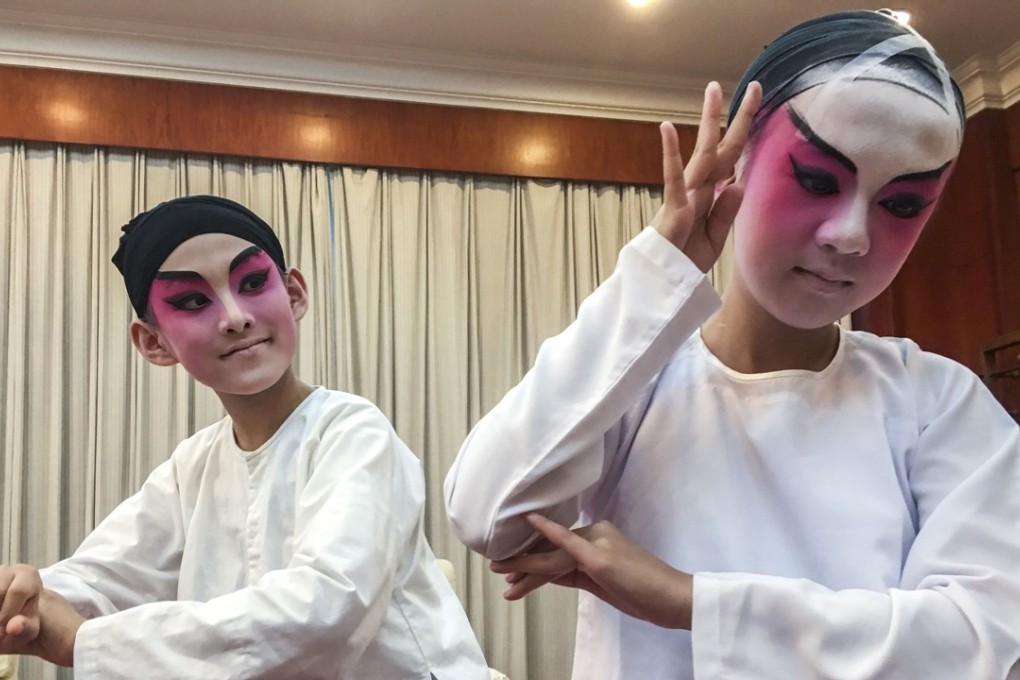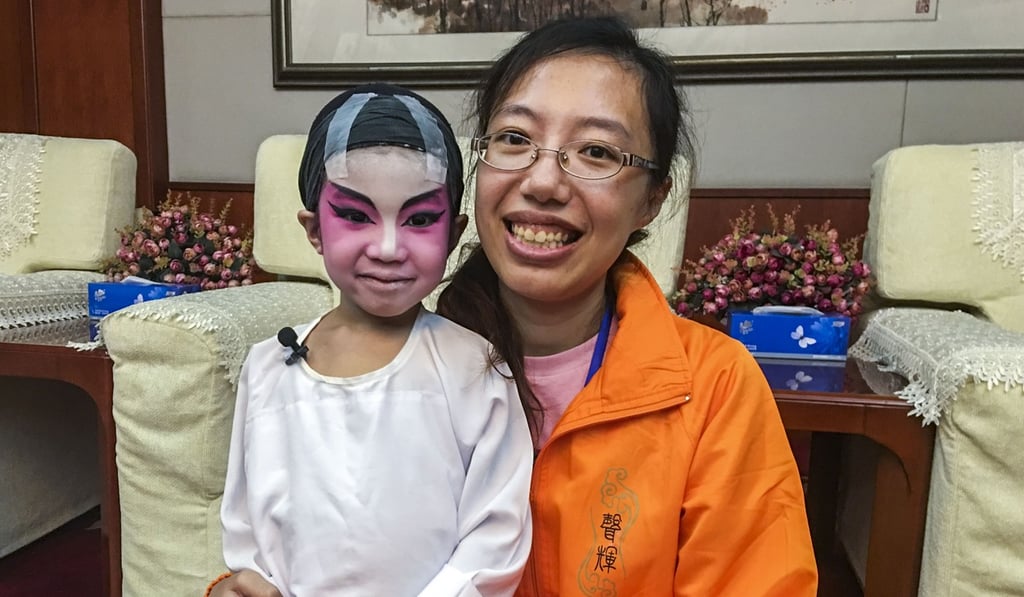In a first, Hong Kong Cantonese opera training school members perform in Beijing alongside mainland Chinese troupes of ancient genre
Group of 40 local young people ranging from three years old to 22 show fruits of gruelling lessons to senior officials amid art form’s growing popularity

Sporting heavy pink, black and white make-up, four-year-old Chloe Lam Sum-wan moves her hands and sings like a veteran Cantonese opera actress during rehearsals at China Pingju Opera Theatre in Beijing.
The girl is one of 40 young people from Hong Kong performing a two-hour Cantonese opera performance in the capital on Thursday and Friday.
Led by Sing Fai Cantonese Opera Promotion Association, they were invited by the Ministry of Culture and Tourism to perform alongside about 100 Cantonese opera troupes from around the country.
Association chairwoman Fong Suet-ying said it was the first time for a Hong Kong Cantonese opera training school to have the chance to perform alongside so many troupes of the genre in mainland China.

“We are training more than 60 students from three to 22 years old in Hong Kong,” Fong added.
Sing Fai is among the estimated 20 youth training schools in the city, with the Chinese Artists Association of Hong Kong and Kim Sum Cantonese Opera also training the next generation for the ancient art form.